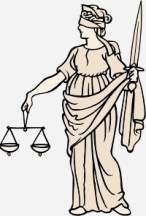SUSAN
REIDEL
ASSOCIATES
DEPOSITION
REPORTERS

1.866.462.8208
WE ARE SUSAN REIDEL ASSOCIATES, a small company
comprised of talented, versatile, and hardworking court reporters.
Collectively
we've reported thousands of depositions, and our many years of experience,
combined with the latest technology in the field of court reporting, provide
you the very best in litigation support.
|
|
|
Thirty
years ago, a court reporter's job was more tedious and labor intensive...
In 1978, when I began my career as a court
reporter, I courageously
entered the deposition suite with little more than a manual stenotype
machine on a tripod, lots of machine shorthand paper, nimble fingers, and
the determination to do the best job I could.
After each deposition, I
pored over my steno notes, blotchy blue letter imprints on those miles-long
accordion-folded ticker tape stacks of paper, tirelessly dictating every
word of the proceedings into a reel-to-reel Stenorette voice recorder. As I dictated I researched the subject matter at hand
as necessary from the odd and eclectic selection of reference books on my
shelf or placed a strategic phone call.
Then it was off to the typist, who transcribed my dictation onto 28-line onionskin paper with carbons in between to make
however many copies were needed. After it was returned to me, I
proofread the transcript and corrected typographical errors by attempting to
line up the original and copies on the typewriter. Corrections were frustrating and tedious
to make.
Many times it was just easier to retype the whole page.
Improved business machines reduce transcription time...
Soon the
IBM Correcting Selectric typewriter and the photocopier replaced
onionskin paper and carbons. Further improvement came with the advent of
the word processor. Although word processing allowed for ease of
appending and correction of the text, the transcription process was still
laborious.
Computer transcription comes of age...
The mid
to late 1980s brought the first generation of clumsy CAT (computer-aided
transcription) systems. Today's highly specialized court reporting
equipment is capable of translating our stenographic notes into a
comprehensible rough copy on the screen of a laptop computer in the
deposition room simultaneously, as we take down the proceedings. The
Internet now provides us an infinitely wide reference bookshelf.
The Art of Court Reporting is still a uniquely human process...
I learned
early on in my career that turning stenographic notes into an accurate and
useful product requires more than just speed and agility on the stenotype
machine. As opposed to merely translating the stenographic notes from machine
shorthand to English, a savvy reporter gains an understanding of the
subject matter of the proceedings. The reporter catches and corrects
errors and "mishears"
which frequently occur
in the data input process and applies punctuation and paragraphing
to the text in appropriate and interpretative ways. This insures a transcript
that both obviously and subtly reflects the statements of the speakers.
While the technological advances of the computer age have been of great
assistance to the court reporter, the ability to translate the spoken word
into a meaningful written transcript is still a uniquely human process.
Speech recognition software is in its infancy in terms of its ability
to differentiate between speakers, tease out words, and make contextual sense
from jumbled colloquy.
For similar reasons, a transcript produced from an electronic recording (ER) is neither as efficient nor
as cost effective as one produced through the trained ear of a court
reporter. For more discussion about speech recognition, ER, and
related subjects, please visit the websites listed on our
Helpful Links page.
|
Please contact us if you have any questions. We look forward to
assisting you with your reporting needs.
Thank
you.
![]()
Phone: 1.866.462.8208

